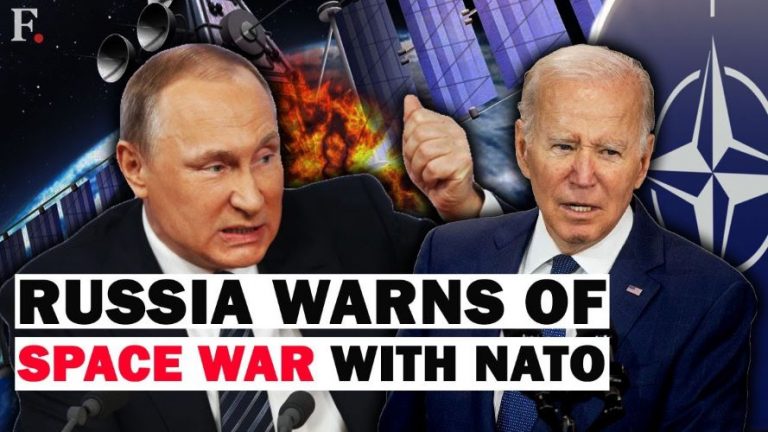
The fact is, that if there is another war one of the key battlefields will be hundreds of miles above our heads. Star Wars and Star Trek are no longer a thing of the future.
By Tom Arms
In the distant past, 1967 to be precise, world leaders hammered out something called “The Outer Space Treaty.”
It remains in effect, but for how long? And what would be the result of its disappearance from the international statute books?
The reason it may be overwhelmed by circumstances is that thousands of satellites have been launched into space since 1967. They have become an essential part of modern life.
They are vital weather satellites; GPS systems that direct are travels; link our mobile phones and banking business and they are the space-based links for the all-powerful worldwide web.
The satellites are also a formidable military tool, providing vital intelligence about troop dispositions which can be immediately transmitted to ground forces. American satellite intelligence is a vital part of Ukraine’s war effort.
All of this, means that the orbiting satellites are an important target in case of war. And at the moment, they are completely unprotected. If they can be quickly knocked out then your enemy’s economy would be instantly destroyed and its satellite eyes pulled from their space sockets.
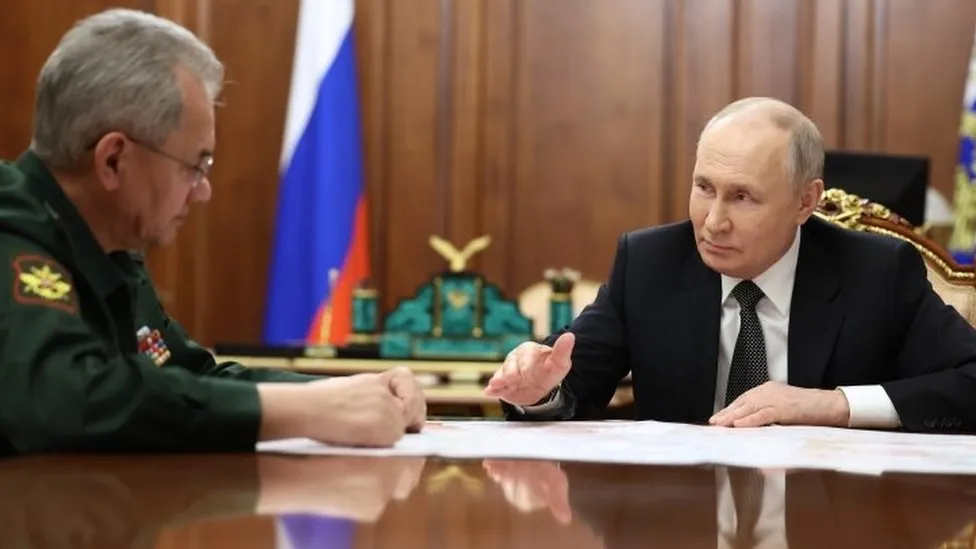
But for such an instant attack to be effective it has to be big and instant. That probably means a nuclear bomb, or series of nuclear bombs or some other as yet unknown weapon of mass destruction.
The Outer Space Treaty forbids this. The prescient clause reads: “States shall not place nuclear weapons or weapons of mass destruction in orbit or on celestial bodies or station them in outer space in any other way.”
Russian President Vladimir Putin, however, is no respecter of international treaties. That is why a sort of panic ensued when Congressman Mike Turner, Republican chairman of the House Intelligence Committee, warned of a “serious national threat” from the Russians.
Publicly his lips were sealed. But in off the record briefings with journalists it was made clear that the threat involved space and nuclear weapons. It was also unambiguously stated that the Russians have not yet deployed such a weapon.
It is unlikely that Russia would go nuclear in space. It would be tantamount to shooting itself in the head at the same time as its enemies. A nuclear explosion in space would knock out Russian and Chinese satellites as well as American.
Putin, of course, denied that he is planning to base a nuclear weapon in space with the implicit threat of detonating it. But then he denied that Russia would invade Ukraine.
However, it is unlikely that Russia would go nuclear in space. It would be tantamount to shooting itself in the head at the same time as its enemies. A nuclear explosion in space would knock out Russian and Chinese satellites as well as American. The unpredictability of the consequences should be enough to hold back Putin.
So would the unpredictability of the inevitable nuclear cloud. Would it disperse into a far-flung galaxy? Or, more likely, would gravity pull it to Earth to pollute wide areas of sea and land.
That does not mean that a space war is out of the question. America, Russia and China are busy preparing for a battle in outer space.
The Chinese have tested a satellite equipped with metal arms that can pluck satellites out of space. The Chinese claim it was developed to collect space debris. The Americans say it has a dual military use.
The Russians have the Kozmoz satellites. The first generation (launched in 2017) was able to sidle alongside other satellites and read their memories. The second Kozmoz satellite (launched in 2019) could read memories and then destroy the enemy satellite.
Russian advances was one of the impetuses for the US launch of its space force in 2019. The USSF (to use its official acronym) has a budget this year of $13 billion and employs 16,000 personnel.
The main mission of the USSF is to protect the thousands of American satellites orbiting the Earth. One way it plans to do this is by launching many thousands more satellites so that it would become near impossible to knock them all out. The satellites would be interlinked so that if one or more were disabled the remaining satellites would instantly fill the gap.
Also read: Putin denies plans to deploy nuclear weapons in space
The US is also developing space weaponry, especially lasers. America leads the field in ground-based laser weaponry. China is number two.
But because a weapon works on the ground does not mean it will work in space. For a start, the laser beam has to hit a satellite which is moving at speeds of up to 20,000 Mph. But the Americans are working on developing laser weapons that can be deployed alongside existing communications satellites and defensive weapons that can be mounted on future satellites.
The fact is, that if there is another war one of the key battlefields will be hundreds of miles above our heads. Star Wars and Star Trek are no longer a thing of the future.
World Review
Alexei Navalny is dead. His body lies in a prison morgue inside the Arctic Circle. It is generally accepted that he was murdered, or at the very least Vladimir Putin is responsible for his death by sentencing him to a frozen penal colony.
After days of standing at the prison gates, Navalny’s mother was finally allowed to see his body. But she has been denied permission to take it away for burial.
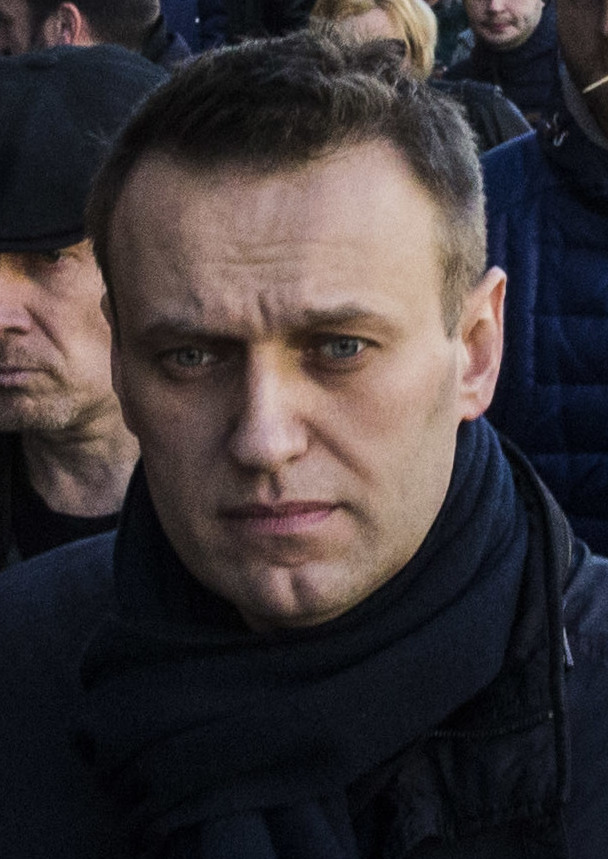
Instead she was told that she had to agree to agree to a secret burial at a hush-hush site. Otherwise, Lydmilia Navalny reported, “the authorities said they would do things to Alexei’s body.”
Putin is clearly afraid of Navalny the martyr. He is afraid that a public burial at an accessible site will become a focal point for those opposed to his corrupt oligarchical rule.
Navalny was not even cold on his morgue slab before the Russian media machine was trying to spin him out of the Russian story. The state-controlled news machine was late in reporting his death and its accounts were, at best perfunctory. There was no contextual information to explain why he was in prison and one commentator refused to use his first name.
From Putin himself there has been a deafening silence. This is unsurprising. In the past, the Russian president has refused to use the opposition leader’s name when directly asked about him at press conferences. He clearly hopes that the dearth of reports by the media will result in Navalny becoming a non-person as well as dead.
This maybe the case in Russia, but it isn’t working in the West. Navalny’s wife Yulia and their 23-year-old daughter Dasha have already been quick to pick up the baton. Navalny’s 15-year-old son Zahar is probably not far behind.
But will the West listen? Yulia made a major impact when she spoke at the recent Munich Security Conference and Dasha joined her mother in an emotional White House meeting with President Joe Biden.
But Biden and the Europeans were a receptive audience before Alexei’s death. The nut that needs to be cracked is the MAGA Republicans. When Trump was asked by Fox News to comment on Navalny’s death he refused to blame Putin and focused on linking Alexei’s death to his own legal problems. We are both persecuted victims of the state, he claimed. Trump added that Navalny should never have returned to Russia after being treated in a German hospital for novichok poisoning.
Navalny knew he would be sent to prison as soon as he returned. He explained the move by saying that he could not expect his followers to overcome fear of Putin’s rule if he did not himself demonstrate bravery by returning to certain imprisonment.
***
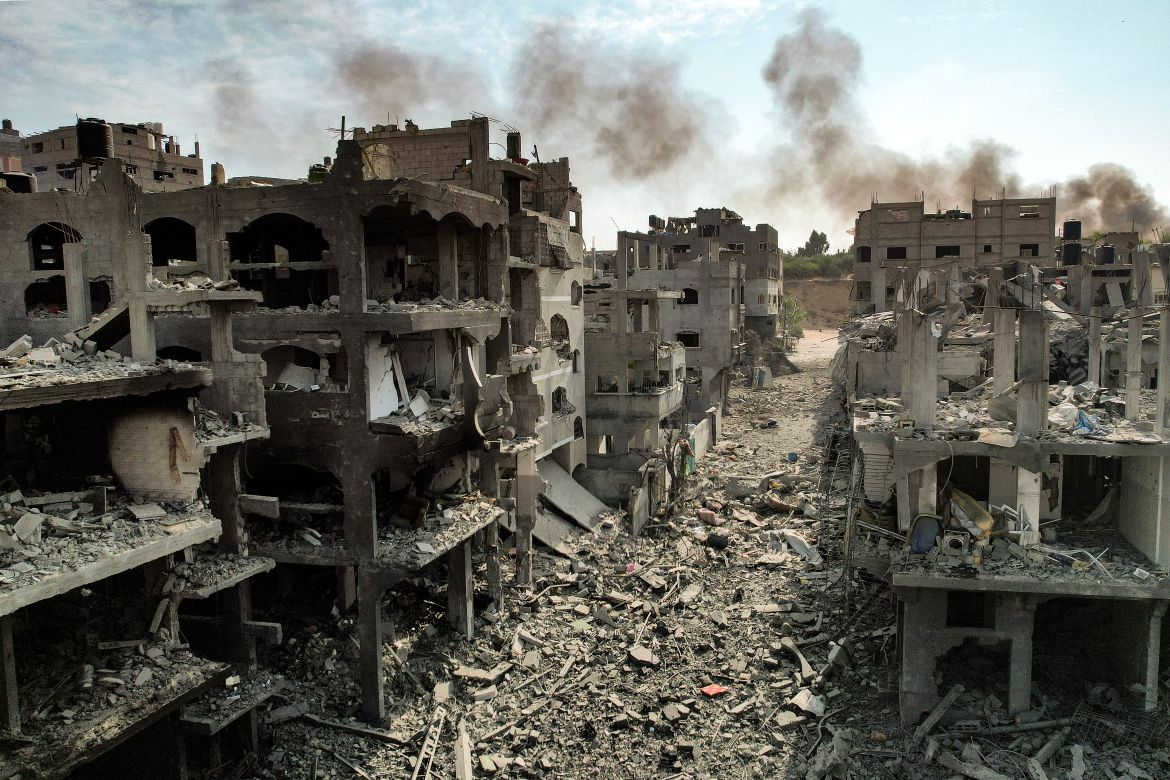
The world is divided on a ceasefire in Gaza. Political leaders in Europe, America, Japan and Australia are generally behind the proposal for a “temporary ceasefire,” the return of the hostages and a massive increase of humanitarian aid into Gaza.
Most of rest of the world backs an immediate ceasefire without reference to the release of hostages or the activities of Hamas.
The divisions are within countries as well as between them, and within NATO. The left-wing of the US Democratic Party is pushing President Joe Biden to agree to press Israel for an unconditional immediate ceasefire.
At the European Union, Josep Borrell, the man responsible for EU foreign affairs, said the problem could be easily resolved if Washington stopped its $3.8 billion in military aid to Israel. The suggestion was immediately dismissed by the State Department spokesman.
At the UN, the US vetoed an Algerian resolution for an immediate ceasefire. America’s UN Ambassador Linda Thomas-Greenfield has a counter draft resolution which she has yet to submit. This is probably because it would probably be vetoed by China and/or Russia, thus leaving the Security Council deadlocked and without any resolution.
If so, they would be following the example of the British Parliament. Attempts this week to pass a resolution on Gaza descended into parliamentary chaos and accusations that the Opposition Labor Party had colluded with Speaker Sir Lindsay Hoyle (who is meant to be politically neutral) to put their amendment before that of the Scottish National Party.
Sir Lindsay, defended himself, by claiming that his clumsy handling of parliamentary procedure was based on the fear that extremists of the right and left would use the voting record of parliamentarians to attack them.
Of course, any resolution, by any political party or organization is unlikely to have any impact on Israeli Prime Minister Benjamin Netanyahu. At the moment his military is preparing a ground offensive against the southern Gazan city of Rafah. He said it will start at the beginning of Ramadan on 10 March. “I will not,” said Netanyahu,” be deterred by from my objective of destroying Hamas.”
According to every diplomatic observer, relations between Netanyahu’s bellicose intransigence are has severely strained relations with Biden. According to The Washington Post, the American president has warned that an attack on Rafah could be the final straw. But would break the back of the American camel’s support for Israel? Or is it another American red line for Netanyahu to ignore?
***
Mayotte is not a part of the world that is normally in the headlines. But it is this week because its problems have the potential to change the immigration policies of France which would in turn have an impact on migration to Europe.
To understand the problem we have to realize that the Indian Ocean island of Mayotte is politically part of France. It has representation in the French National Assembly. The citizens of Mayotte are citizens of France and they vote in French elections.
Mayotte is what is known as an Overseas Department. France has five of them—Mayotte, Tahiti, French Guyana, Guadeloupe and Martinique.
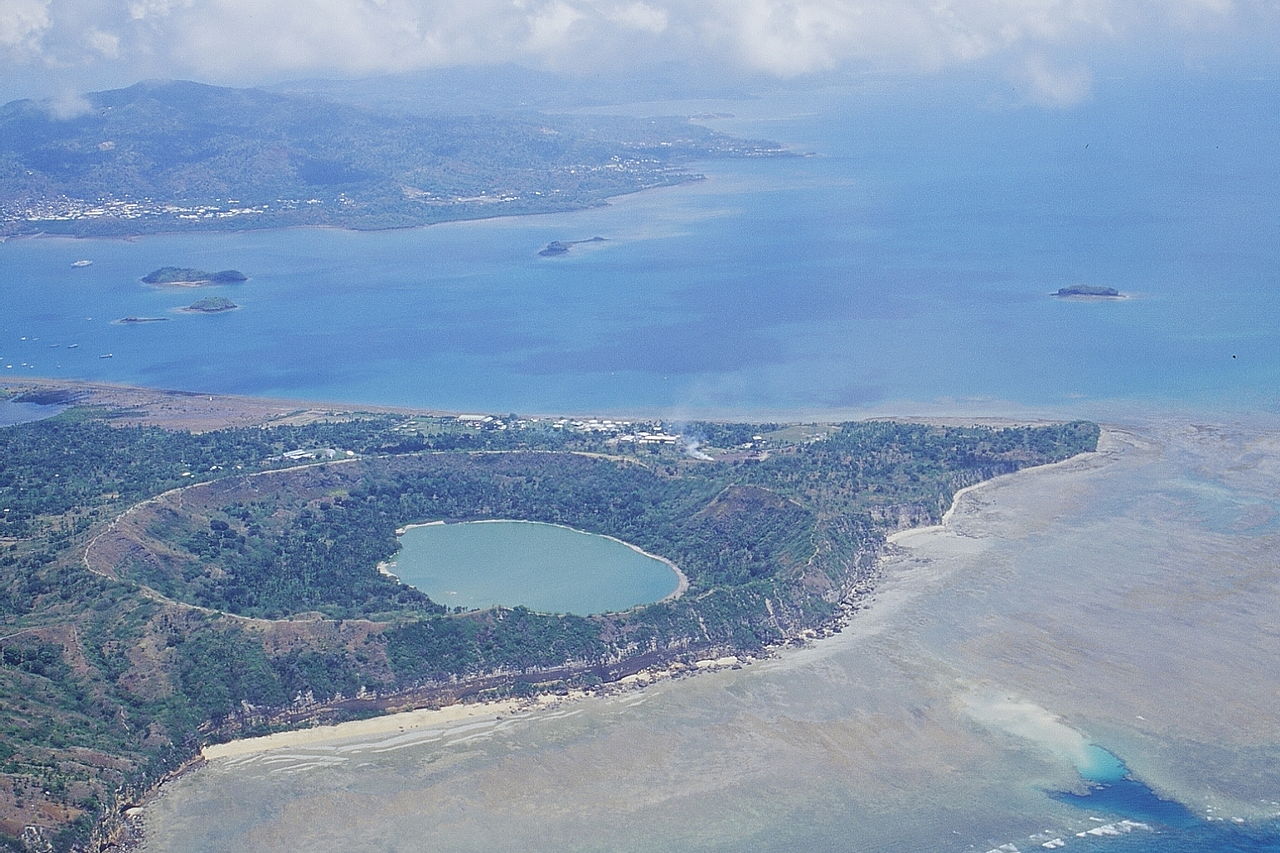
In the case of Mayotte, it used to be politically linked with other islands in the Comoros archipelago. Then in 1974 the rest of the archipelago voted to become independent and renamed themselves the Union of the Comoros. Mayotte voted to remain French.
All well in good. The problem is that Mayotte grew more prosperous than their neighbors, although it is very poor compared to the French mainland. Residence in Mayotte, could also lead to French citizenship and the opportunity to move to rich Europe.
The result was a massive influx of Comorians to Mayotte. In fact, half of the 330,000 residents are Comorian immigrants. There is especially a roaring trade in pregnant women travelling to Mayotte to have their babies. This in turn has led to violent demonstrations against the immigrants.
Because Mayotte is officially part of mainland France, the person responsible for dealing with the problem is French Interior Minister Gerald Darmanian. He has said he would organize an amendment to the constitution that would strip children born on Mayotte to non-Mayotte French parents of the right to obtain French citizenship.
This has infuriated the French Left who point to a 2018 statement by Darmanian that “there are not two categories of French people and there are not two categories of French territories,”
The French right, however, are delighted, and argue that the same rules that are being proposed for Mayotte should be extended to all French territories—including the French mainland.
___________________
 Tom Arms is Foreign Editor of Liberal Democrat Voice and author of “The Encyclopaedia of the Cold War” and “America Made in Britain.” He is also co-host of the world affairs podcast “TransAtlantic Riff.”
Tom Arms is Foreign Editor of Liberal Democrat Voice and author of “The Encyclopaedia of the Cold War” and “America Made in Britain.” He is also co-host of the world affairs podcast “TransAtlantic Riff.”
[…] Read: Observations of an Expat: Space Wars […]
[…] Read: Observations of an Expat: Space Wars […]